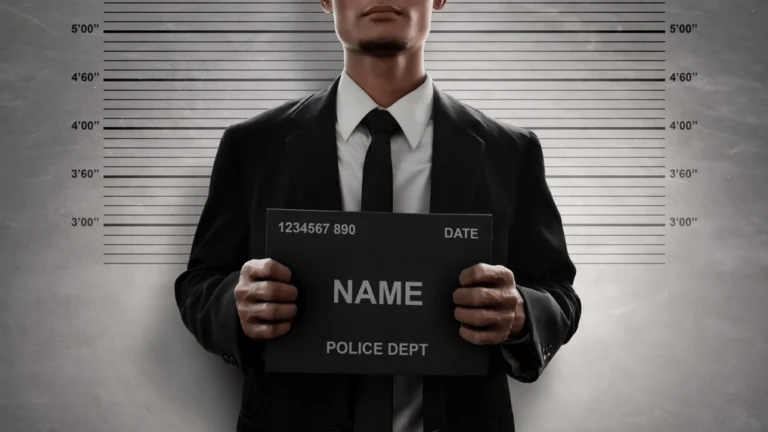It’s January again, which means that people all across America are getting involved in National Slavery and Human Trafficking Prevention Month.
The national effort to raise awareness about the local and global problem of human trafficking has been going on for over a decade. In 2007 the U.S. Senate designated January 11th as the National Day of Human Trafficking Awareness, and in 2010 President Barack Obama officially declared January National Slavery and Human Trafficking Prevention Month.
This year, President Obama’s presidential proclamation on the topic stated:
“During National Slavery and Human Trafficking Prevention Month, we resolve to shine a light on every dark corner where human trafficking still threatens the basic rights and freedoms of others…As leaders in the global undertaking to end the exploitation of human beings for profit, we must always remember that our freedom is bound to the freedom of others. This month, let us find inspiration in America’s progress toward justice, opportunity, and prosperity for all and reaffirm our pledge to continue fighting for human rights around the world…I call upon businesses, national and community organizations, families, and all Americans to recognize the vital role we must play in ending all forms of slavery and to observe this month with appropriate programs and activities.”
The call for businesses, organizations, families, and individuals to play a role in combating all forms of trafficking and slavery is noble. It is also potentially overwhelming at the individual level.
Human trafficking is a global problem.
By definition, human trafficking includes force, fraud, or coercion to obtain some type of labor or commercial sex act. It’s important to promote awareness and prevention of both labor and sexual slavery, though the National Center on Sexual Exploitation specifically addresses the issue of sex trafficking.
Statistics vary wildly on whether victims number in the millions or hundreds of millions largely because it is a crime that inherently exists underground, and so it’s difficult to measure with exact precision. Whatever the exact number may be, it should be clear to all of us that even one enslaved person is one too many.
So what can one individual do to combat sex trafficking?
We’ve got three actions you can take for National Slavery and Human Trafficking Prevention Month:
1. Participate in our #TackleDemand campaign before the Super Bowl.
We are conducting a social media awareness campaign to send the message that buying sex (the demand) perpetuates the sex trafficking of women, men, and children (the supply.) Any time someone buys commercial sex, even if they believe that the seller is willing, they are feeding a system of exploitation.
You can get involved by pledging a social media post on the evening of the Super Bowl through our Thunderclap tool.
Thunderclap creates a “virtual flashmob” in order to raise awareness about an issue. When you sign up you are scheduling the social media message “Real sports fans don’t buy sex. #TackleDemand for sex trafficking at #SB51.” to be posted on your Twitter, Facebook, and Tumblr. These messages will all be posted on the same day, at the same time, in order to reach a widespread audience! Sign up here:
You can learn more here.
2. Learn about the links between pornography and sex trafficking at StopTraffickingDemand.com.
Many people still don’t realize that supporting the pornography industry by watching it, whether you pay or not, can promote sex trafficking. In fact, it’s very likely that regular pornography users will eventually watch pornography featuring coerced performers. Many professional performers in pornography are sex trafficked into a hostile environment of sexual exploitation, forced labor and physical abuse. You can read the stories of some individuals who were trafficking into pornography and learn more here.
3. Learn the warning signs.
Victims of human trafficking can fit into any demographic—they can be male or female, of any age. These warning signs are not exhaustive, but may be helpful in identifying individuals who could be coerced.
- Under 18 performing commercial sex
- Lack of control over personal ID / passport
- Giving their money to a “manager” / “pimp” (note: can be male or female)
- Owes a large debt and works to pay it off
- Confused about the city or state they’re in
- Avoids looking people in the eye, seems nervous, depressed
- Signs of physical abuse, bruises, cuts, may be accompanied when visiting the doctor
The Department of Homeland Security provides an additional list of human trafficking indicators as well. Human trafficking can take place anywhere but it’s helpful to be especially alert in places like gas stations or rest stops, airports, and hotels or motels.
Where to report it:
- Call 1-866-DHS-2-ICE (1-866-347-2423) to report suspicious criminal activity to U.S. Immigration and Customs Enforcement (ICE) and Homeland Security Investigations (HSI). You can access the tip line outside the United States by calling 802-872-6199.
- Submit a tip at www.ice.gov/tips. Trained officials take reports from both the public and law enforcement agencies on several subjects, including human trafficking.
- To get help from the National Human Trafficking Hotline (NHTH), call 1-888-373-7888 or text HELP or INFO to BeFree (233733). The NHTH is operated by a nongovernmental organization that can help connect human trafficking survivors with service providers, provide technical assistance, and other resources.
Human trafficking is a macro-level problem. But personal action starts on the micro-level.
If each person does their part to combat the demand for commercial sex, and to identify and assist survivors, our nation will end January with a stronger stance against human trafficking.



